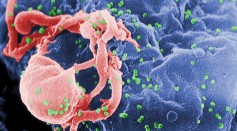pharmaceuticals

MolMapNet: New AI Tool Uses Deep Learning to Predict Pharmaceutical Properties

AeroNabs: A Novel Protection Against COVID

Naturally Chiral Surfaces Could Lead to Safer Pharmaceuticals
Ecstasy for the Terminally Ill? Will This Party Drug Prove Effective Against Anxiety?

Coffee May Actually Fight Breast Cancer

ADHD Drugs More Commonly Used in White Collar Jobs
Pfizer Announces IBRANCE Clinical Trials Ended Early In Light of Promising News
Prescription Drug Spending Jumped in 2014
Could New HIV Strain Cross the Atlantic? Fears of the Spread of Aggressive HIV from Cuba

New HIV Strain in Cuba Has Researchers Rushing to Stop Fast Progression of AIDS

Extra Funding Sought to Fight Antibiotic-Resistant Bacteria

Over-the-Counter Drugs Linked to Increased Chance of “Dementia”

Breast Cancer Patients Have Limited Knowledge of Their Disease

Experimental ZMapp Treatment Off To Liberia to Begin Clinical Trials
Most Popular

How Technology Is Changing the Real Estate Industry?

How a Plant-Based Diet Can Protect Against Breast Cancer: Insights from Nutrition Research

Study Reveals High Turnover in Scientific Research Careers: What This Means for Future Scientists

Nikolay Karpenko Biography, Photo, Career, Accomplishments






